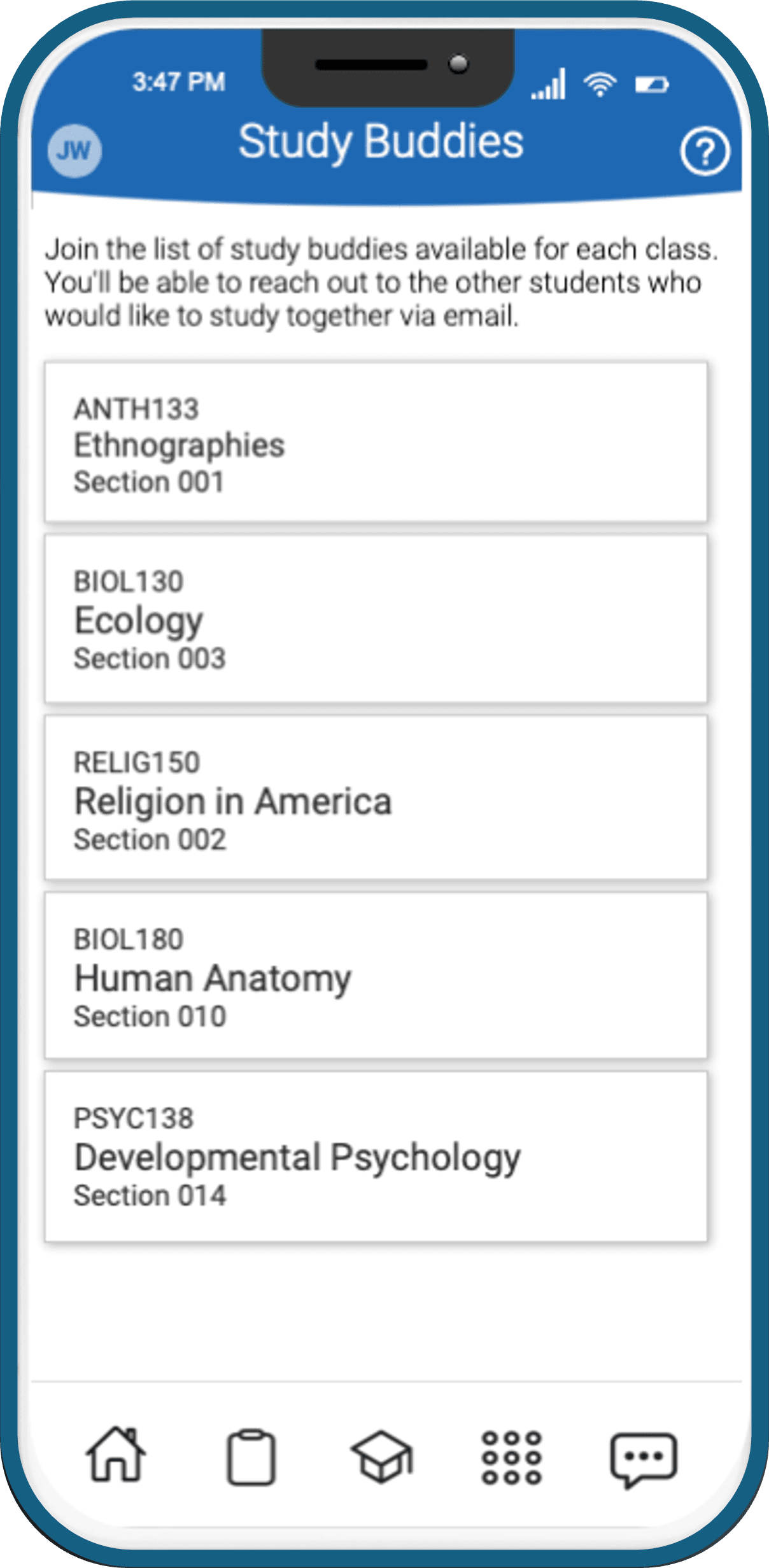Future students will need more academic support
The last several incoming classes of college students had their high school learning significantly disrupted by the pandemic, creating major student success challenges for higher education. ACT results reveal a sharp drop in college readiness, particularly in core subjects like math and English, with the latest cohorts experiencing substantial knowledge gaps. These challenges are expected to persist well into the early 2030s, as K-12 learning deficiencies compound over time.
Explore Our New Research on Student Readiness
For higher education institutions, addressing these gaps requires a shift towards becoming more “student-ready.” Over the past decade, initiatives like Guided Pathways and developmental education reforms have made strides in supporting first-year students. However, these reforms take years to implement, necessitating faster, more immediate solutions to support today’s students. In this post, we’ll explore two case studies—NevadaFIT at the University of Nevada-Reno and Spelman College’s mandatory study groups—both of which have demonstrated success in improving first-year student outcomes. We’ll then break down why these strategies work and how institutions can apply these lessons to better support their own students.
Two proven pathways to support incoming students
To make an immediate impact, institutions should consider two proven strategies: academic camps and mandatory study groups. These approaches not only boost academic readiness but also foster community, ultimately enhancing student retention and success.
Case study 1: University of Nevada-Reno’s freshman transition program
University of Nevada-Reno’s freshman intensive transition program (NevadaFIT) exemplifies the potential of academic camps to improve first-year student outcomes. Originally launched in 2013 for a small group of biology students, NevadaFIT now includes the entire first-year class, serving over 3,600 students annually. This one-credit, week-long program immerses students in the college-level rigor and campus life they will encounter during their college careers.
NevadaFIT’s comprehensive approach not only prepares students for the academic rigors of college but also fosters a sense of community, setting them up for long-term success.
The program works because it provides a low-stakes opportunity for new students to level-up their readiness for college. Any missteps that happen provide a valuable chance to learn from mistakes before the real semester begins and the stakes are higher.
-
Program structure
- Intensive academic preparation, including lectures, homework, and exams.
- Skill-building workshops on financial literacy, study strategies, and mindfulness.
- Peer mentorship with over 500 upper-class students offering support and guidance.
-
Benefits and impact
- Higher retention rates: Participants have retention rates 5-10% higher than non-participants.
- Improved academic performance: Pre-existing data show participants consistently outperform non-participants.
- Increased confidence: 68% of undecided students identified a major by the end of the program.
NevadaFIT’s success stems from its low-stakes environment, allowing students to adapt to college life without facing immediate academic penalties.
Case study 2: Spelman College’s first-year study groups
Spelman College made study groups mandatory for first-year students in Fall 2024, backed by several years of data showing a strong correlation between study group participation and higher GPAs, retention, and major declaration rates. The study group program started during the pandemic to enrich the virtual learning environment and foster community engagement. The successful program made the transition to in-person when campus operations resumed and is now embedded within the First Year Experience (FYE) course that all incoming students must take.
By embedding study groups into the academic structure, Spelman College creates an engaging learning environment that helps students promote their own success. The program also aligns with the all-female HBCU’s commitment to cultivating a supportive, inclusive community where students can thrive academically and socially.
Hear how Spelman College is successfully helping students start (and stay) on the right track in this episode of EAB’s Office Hours.
-
Program structure
- Incoming students are required to attend at least four student group sessions
- Small group study sessions of 12-15 students led by upper-class peer mentors.
- Weekly meetings focusing on coursework review, learning strategies, and team bonding.
- Virtual and in-person study halls with faculty advisor support.
-
Benefits and impact
- Learner engagement: The program offers opportunities for peer tutoring and interaction with faculty, addressing both academic and personal challenges.
- Higher GPAs: Students who participate in study groups get better grades, and the improvement in grades is correlated to the number of times a student attends.
- Community building: Small group settings foster meaningful connections among students, enhancing their sense of belonging.
Study groups have helped students academically, but they also have had an intangible positive impact on socioemotional wellness. This incoming class of college students were in ninth and tenth grade during the 2020-2021 and 2021-2022 pandemic school years, disrupting their adolescent social development. Study groups are a great way to build community, encourage social engagement, and foster friendships for students who might still be struggling to connect.
We have found over the last four years that the first-year study groups have been proven successful. And we’ve also found that it’s statistically significant—the success and the increase of GPA of students who participate in the program and attend at least four sessions compared to those who do not.
Dr. Andrea Lewis
Director of the Student Success Program at Spelman College
Why these academic readiness programs work
Both NevadaFIT and Spelman’s First-Year Study Groups highlight scalable strategies for improving first-year academic performance. While their approaches differ—NevadaFIT emphasizes pre-semester boot camps, and Spelman integrates support throughout the academic year—both focus on bringing incoming student up to speed and set up well to succeed in their first semester.
Key benefits of these academic readiness initiatives include:
- Use of existing resources: NevadaFIT uses classrooms, instructors, and dorms that would otherwise go unused in the week before the semester. Spelman uses the students themselves as the key ingredient in their practice and has embedded study groups within the existing first-year experience course.
- No curriculum changes required: Both programs described here work alongside the existing course infrastructure, sidestepping the need for curricular changes that would require the approval of the faculty. Faculty see these programs as adding value and supporting their own work with students, not as a disruption.
- Scalability for entire incoming classes: Some intensive support programs are highly effective but can only serve a small number of students. The changing nature of student readiness means that schools need to support their entire incoming class.
- Proven impact on retention and GPA: In both cases, the institution collected rigorous data showing a positive relationship between program participation and higher retention and GPAs. Data proving effectiveness makes it much easier to convince leadership and other stakeholders like faculty to greenlight program expansion.
 How Navigate360 helps support academic readiness
How Navigate360 helps support academic readiness
Spelman uses Navigate360 to help coordinate their study groups, including a picture and contact information for the first-year study group leader assigned to each student. The group leader is listed along with the rest of the student’s coordinated care team, which might include an academic advisor, financial aid counselor, and career coach, among others. Students can easily make contact and schedule appointments with their team through the Navigate360 app.
Equip students with the tools they need
For colleges and universities grappling with declining student readiness, these programs offer actionable solutions that bridge academic gaps while fostering a supportive learning environment. Implementing scalable initiatives such as summer boot camps and mandatory study groups can help institutions:
- Improve first-year retention rates and GPA outcomes
- Build a stronger sense of community and student belonging
- Provide academic support without extensive curriculum changes
By adopting similar strategies, institutions can equip students with the tools they need to not only survive but thrive in their academic journeys.
Ready to boost academic readiness at your institution?
With over a decade of experience in improving student success, EAB is here to support your institution in addressing academic readiness challenges at every stage. Fill out the form to connect with our experts and discover how Navigate360 can equip your students with the tools they need to thrive while streamlining institutional processes.

More Blogs

Career readiness can’t wait until junior year

What matters to student success teams in 2026

 How Navigate360 helps support academic readiness
How Navigate360 helps support academic readiness